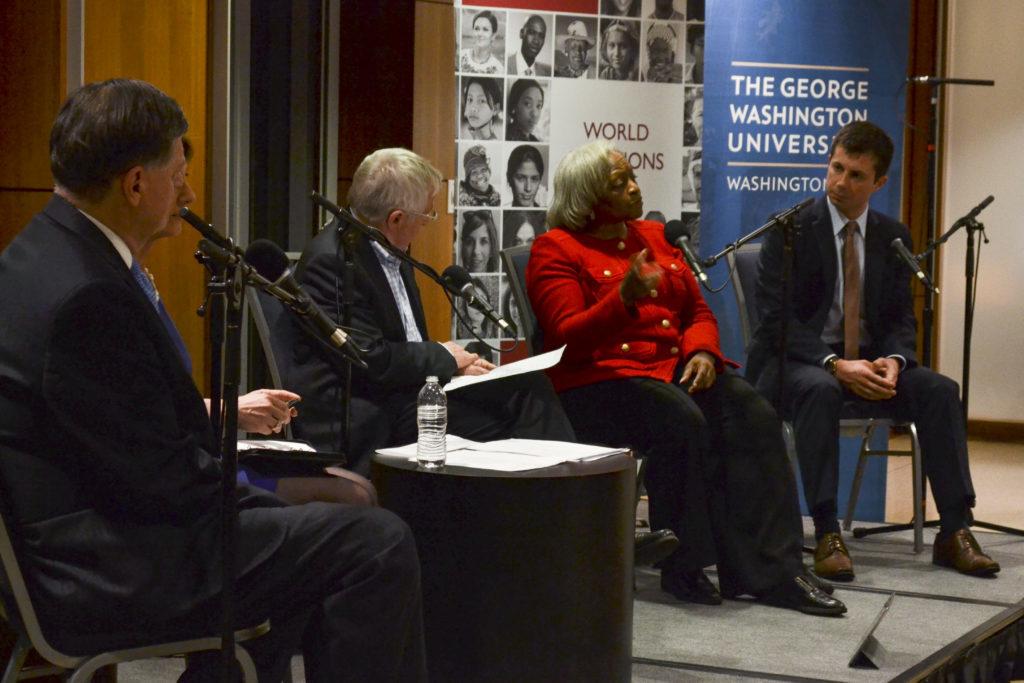A popular BBC radio series came to campus Tuesday night for a wide-ranging discussion about the current political climate across the country.
The monthly series “BBC World Questions,” features a panel of four experts and political leaders from a different country each episode fielding questions from members of the audience.
Tuesday’s discussion was held at the Elliott School of International Affairs and included panelists from across the American political and ideological spectrum.
Guests included Rep. Tom Cole, R–Okla., Pete Buttegeig, the Democratic mayor for South Bend, Ind, Diana Furchtgott-Roth, a senior fellow at the Manhattan Institute and an economic adviser to President Donald Trump’s transition team and Carol Anderson, a professor of African American studies at Emory University.
BBC’s Jonathan Dimbleby hosted the event which will air worldwide on BBC Radio this Saturday.
The panel answered questions posed by guests, all pertaining to current events in the U.S. and many focused on Trump.
Audience members questioned the panel on Trump’s vision for the U.S., his conflict with the press and how exactly he will live up to his campaign promise to “Make America Great Again.”
Furchtgott-Roth said that Trump’s victory was about breaking free from “the noose of the establishment.”
“America is tired of normal politicians,” she said.
Anderson, who recently published “White Rage,” a book that argues that resentment of white Americans contributes to structural racism in America, said that Trump had championed a dark vision for America.
“What it really is about is the fear of the changing demographics in the United States,” she said.
Cole, one of two Native Americans currently in Congress, disagreed, saying Trump’s vision had more to do with people challenging a status quo that had not been working for them.
“I’m Native American so obviously I don’t quite see it the way that my friend does,” he said.
Buttegeig, who comes from a state Trump easily carried in last November’s election, said the Democratic party had the wrong message throughout last year’s campaign.
“We appeared to be the party saying ‘the system is perfectly fine.’ And that was not convincing because it’s not true,” he said.
He added that Trump’s focus on working-class jobs was very appealing, particularly in the midwest.
“Where I come from people would vote for a ham sandwich if it gave them a job,” he said.





